Work and Identity in Corona Times
Nelson Shantz
June 8, 2020
I’ve made a career of working on pianos. Much of that work has been tuning. Other work is focused on improving touch and tone. I’ve worked in home, school, college, church and studio settings. I’ve tuned in a distillery, in a barn, under the band stage tent on a foggy June morning in Ypsilanti Riverside Park, in Hill Auditorium, in the Downtown Home & Garden drive-through in December, in a fraternity with the weekend beer spills still puddled on the dining room floor.
As my skills and interests expanded, I added tools and equipment to begin rebuilding pianos in my workshop.
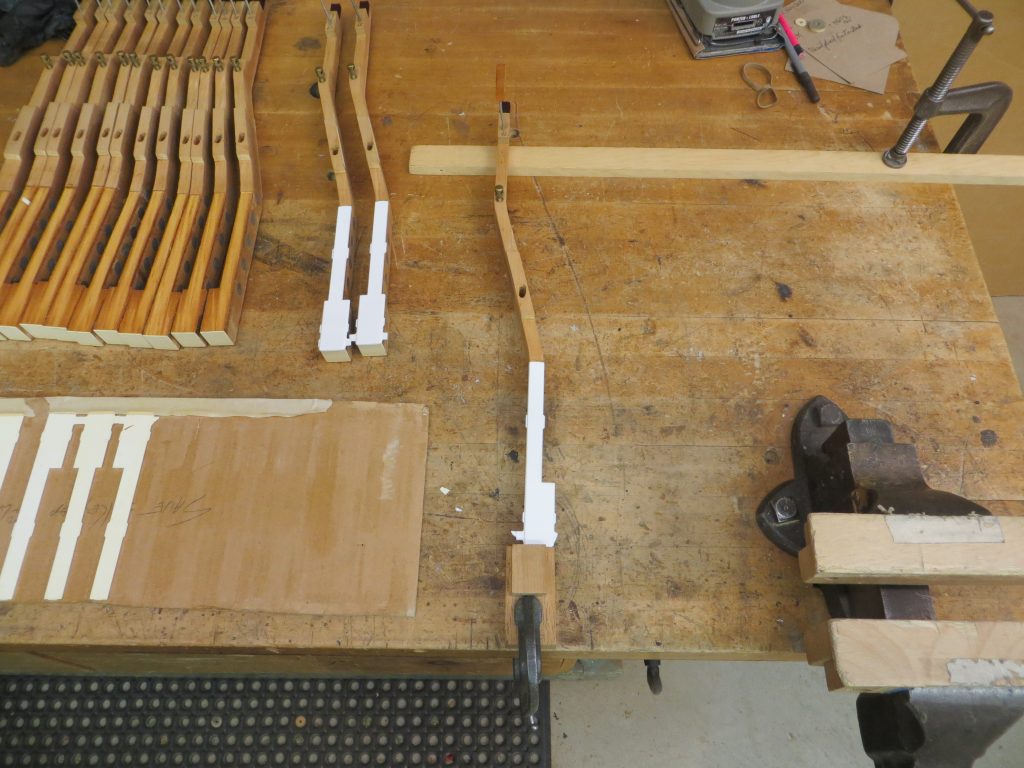
These tasks ranged from repairs to sets of keys,
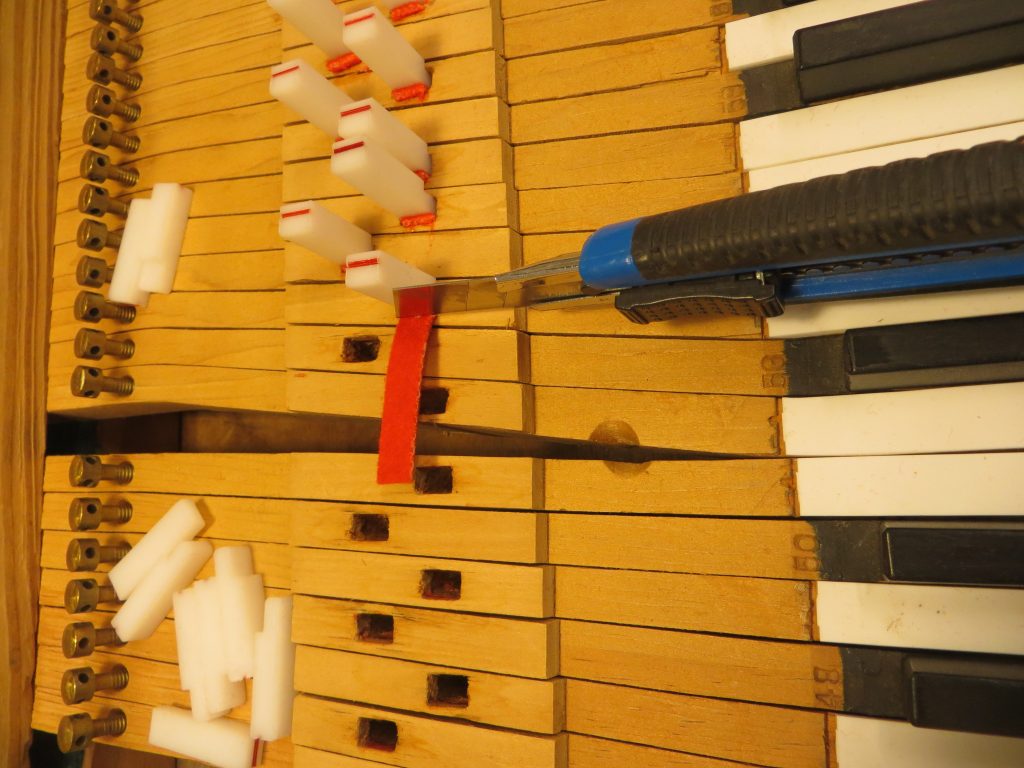
replacing worn parts in the mechanical actions of pianos followed by extensive regulation
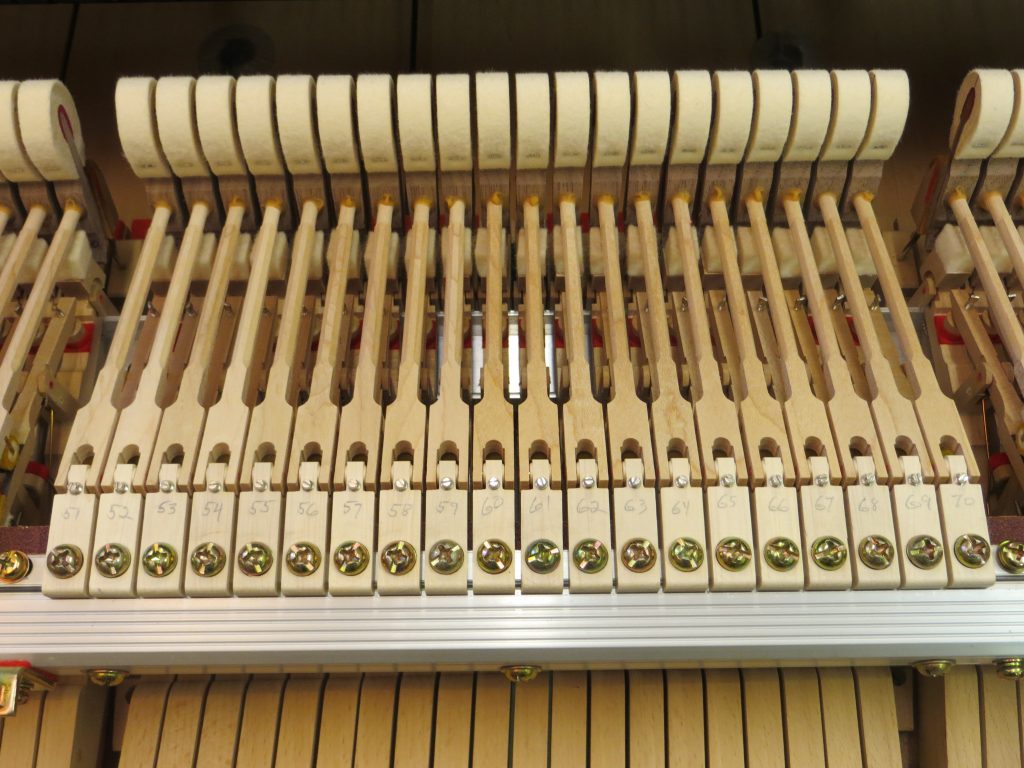
to optimize the touch, to full rebuilding that included replacement of soundboards and pinblocks, bridge recapping and carving, and installing new strings. In the last 15 or 20 years, my goal has been to spend at least half my time in my shop doing this sort of work. I’ve approximately accomplished that.
As I approached ‘retirement’ age, my target was to reduce my work week by one day each year onward from 65 so that I’d be retired when I turned 70. I reached 70 during Corona Times, in April. By that point, I had managed to reduce my work week by one day. I had not met my target. I was still working about 4 days per week.
Yet I am happy in work. My tuning customers are nearly all long-time customers and friends, people whose pianos I have serviced for 10 or 20 or 30, even 40 years. A few of these are second generation customers. One of these taught my children piano and percussion. I am respected and my services are desired. My fees are seldom questioned. I am told I can’t retire—who will tune the piano?
In recent years, I usually had a one-to-two-year-long queue of rebuilding projects for customers. This gave me a strong sense of job security. I completed that work last year. I was ready to work on my own pianos—ones I had acquired to rebuild for re-sale but which I never had time for. This was my long-anticipated final chapter of work.
In March, we were told to stay home. I canceled the scattering of tunings on my calendar. I had no morning alarm, no deadlines, no need to leave the breakfast counter before finishing a magazine article or a crossword. Yet two steps from the kitchen, I had a year or two’s worth of work to do. Two steps back to the kitchen was the expresso machine. I felt I had been given a gift.
I say this with some delight. I have savings, health, a paid-for house, a companionable spouse, adult children who, so far, are able to provide for themselves in these times.
I also say it with some hesitation. I’m well-aware that these are stressful, even catastrophic circumstances for so many people. From the individual to the global, life is profoundly uncertain, and the future unclear.
This is a series about spirituality and work, about rest and Sabbath, about identity in work, about identity when one has no work. I’ve listened to others of you, to stories in the news, to my neighbors across the property lines. I continue to feel that I’ve been handed a gift in the pace and content of my days.
As I have looked for shadings and meaning in this flow and experience of work, some questions have emerged:
Who am I when I work?
I practice an uncommon trade. I have some musical aptitude and a great love of music, but not the gifts of a performing musician. I have technical aptitude but not the mind for deep technological work. I fit well at this intersection of musical and technical fields where the pairing of two more modest capabilities applies. I am grateful that I found my way to this craft.
I like that I do something unusual but a trade that many people call on. I’m guessing I’ve worked in more of our congregation’s households than anyone else here. Yet few people have the ability to really critique my work. That leaves me with responsibility for quality control. What is good enough? Do I just improve the piano enough to get out the door without a call back? Or strive for more?
In my early years, I worked diligently to make each tuning the best I could, while worrying that it would not be satisfactory. As I improved, I continued—perhaps compulsively—to try to make each tuning the best I could. The practice became ingrained, and it has served me well. My customers—good musicians among them—call me, thank me, and call me back. More fundamentally, I have a sense of integrity about having done my best.
I’ve acquired other service skills that permit me to suggest that a piano could play and sound better, to point out its problems, perhaps to demonstrate its short-comings, and then deliver a result that was unimagined and exciting to play. This is a wonderful feeling and an affirmation of my abilities. More than that, it is an affirmation of music and of this exceptional instrument—the piano.
There have also been times when I have not had these successes, when I couldn’t hear the buzz, when I couldn’t offer a solution, when my customer was indifferent or dissatisfied. These are also learning opportunities! The most useful lessons have been to be quick and gracious about making another effort, to try something else, to acknowledge my limitations, and to express regret for failure.
There are themes of humility and pride running through these observations. One of these—humility—is regarded as a virtue; the other—pride—is named as one of the seven deadly sins. Is a choice called for? Or do both of these have a place?
If there is a call to choose humility over pride, I reject it. I believe I serve my customers best and maintain my own sense of self best by combining pride in my skills and the products of my work while also acknowledging and addressing my limits and failures.
Another question that has emerged is that of legacy. Near the end of a career, what can I look back on? For what, if anything, will I be remembered?
There is satisfaction in having spent a career working in a community big enough to offer plenty of opportunity but small enough to be known and recommended. Ruth is often amused by how often I randomly greet or recognize someone as we go about shopping, walking, attending concerts, or reading the obituaries. “Tuning customer” has become the default explanation. I like this sense of belonging.
What about the work itself? A good piano tuning is a fleeting thing. Bring in a new weather system with a change of humidity, turn on the furnace, and soon—a few hours or a few days—and the piano may begin to sound a little twangy. Give it a seasonal change, and it may be wild and raucous. I go and tune it again; that’s bread and butter, and good for making a living.
The work I do in the shop offers the possibility of more enduring satisfaction.
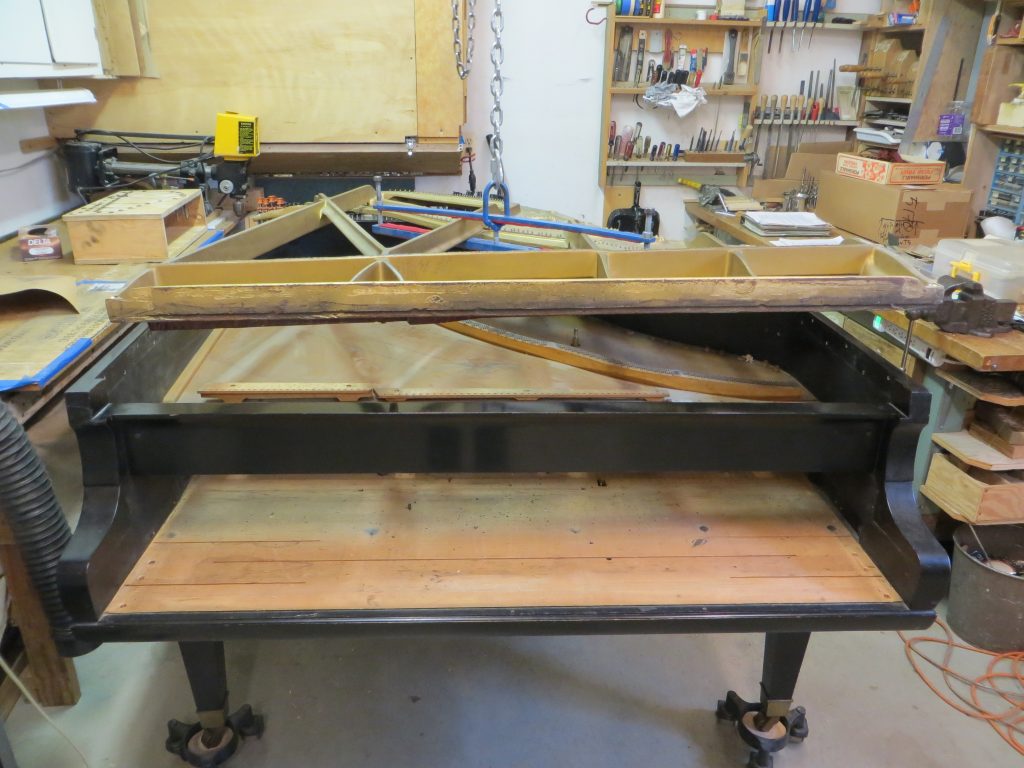
When I dis-assemble a piano,
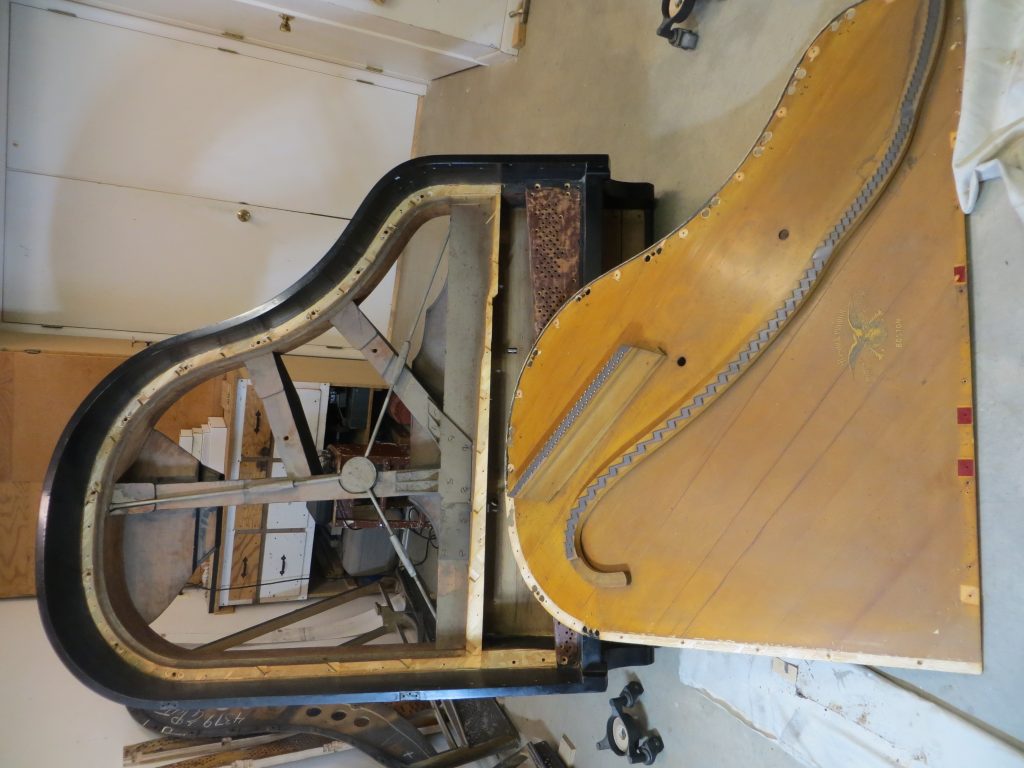
break out the old soundboard,
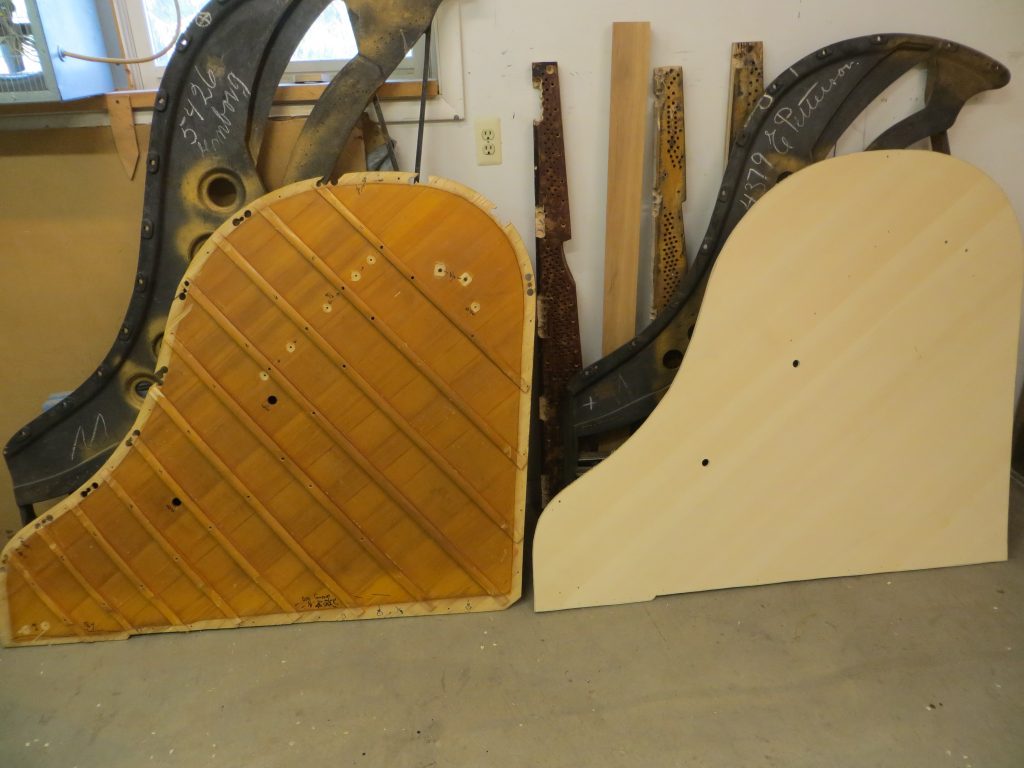
and begin to make a new one, I am beginning a project whose success will not be known for many months.
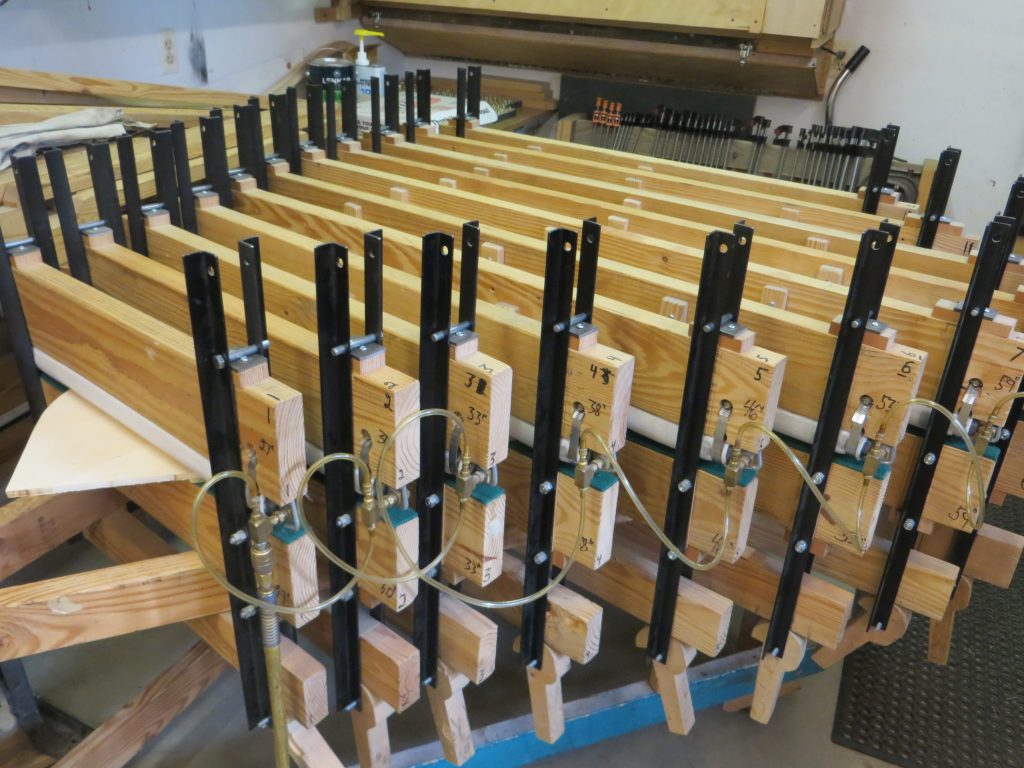
I may even dare to make a few changes to the design of an illustrious manufacturer in business for more than a century.
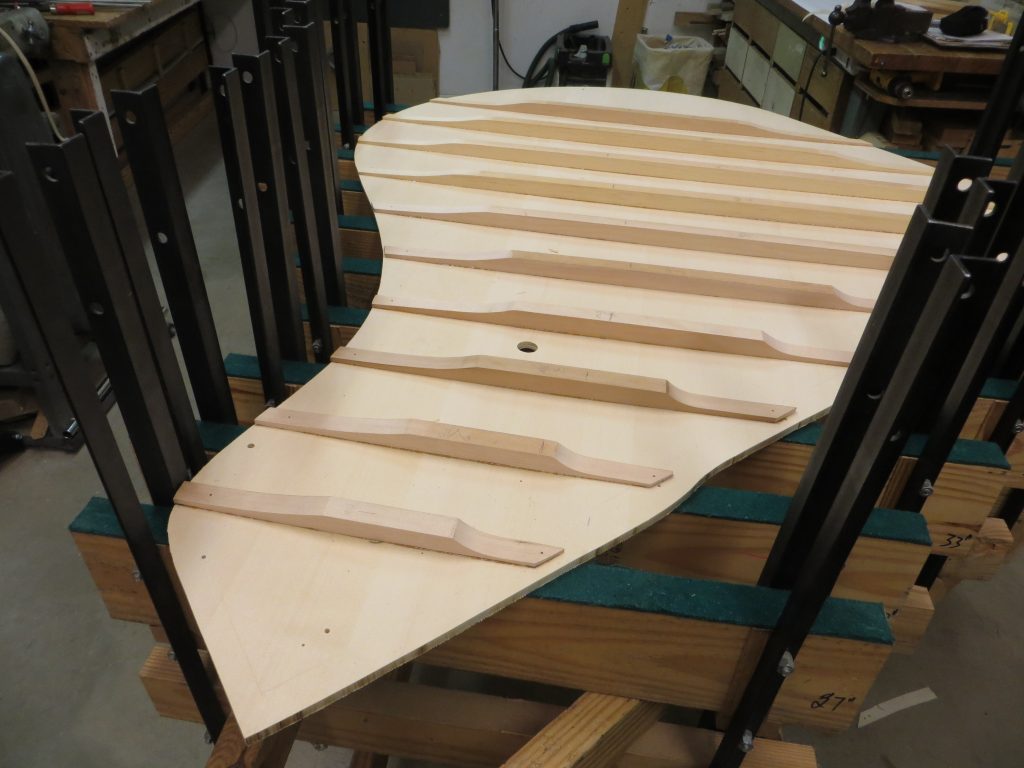
Will I get a piano that sounds beautiful again? How will it compare to the original? (We can’t really know that—it was made 70 or 80 or 110 years ago.)
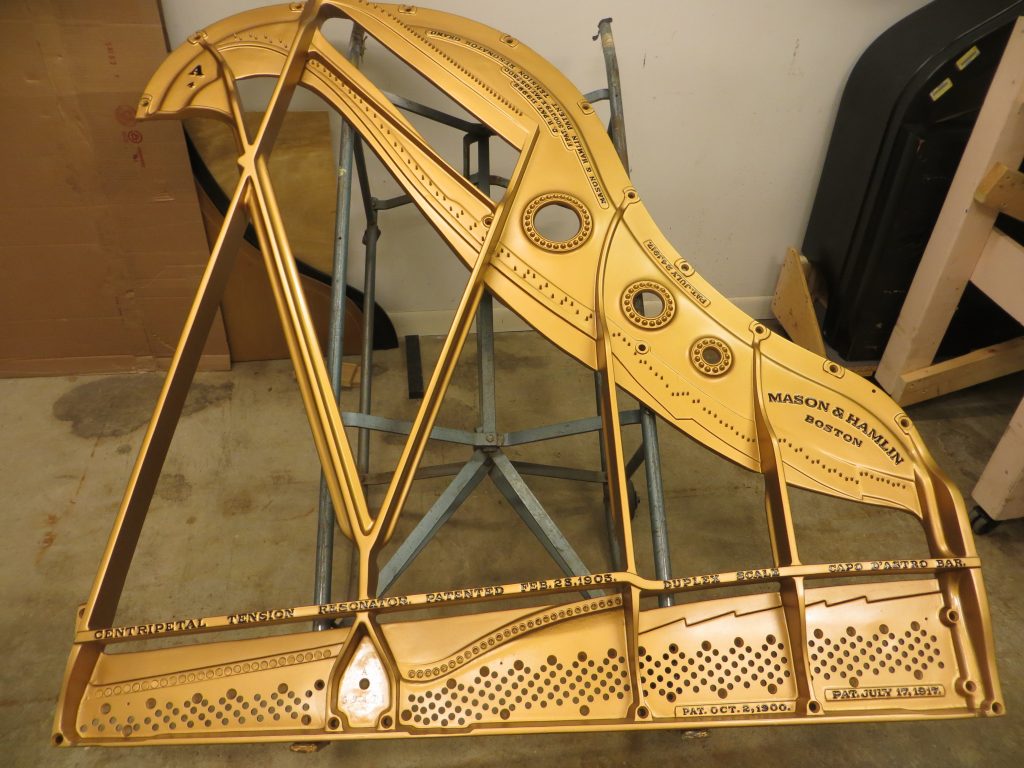
Will it be exciting to play? Will I be proud of it, confident in its worth and durability? Will someone be willing to pay me for it? Will the owner be happy to play it for years to come?
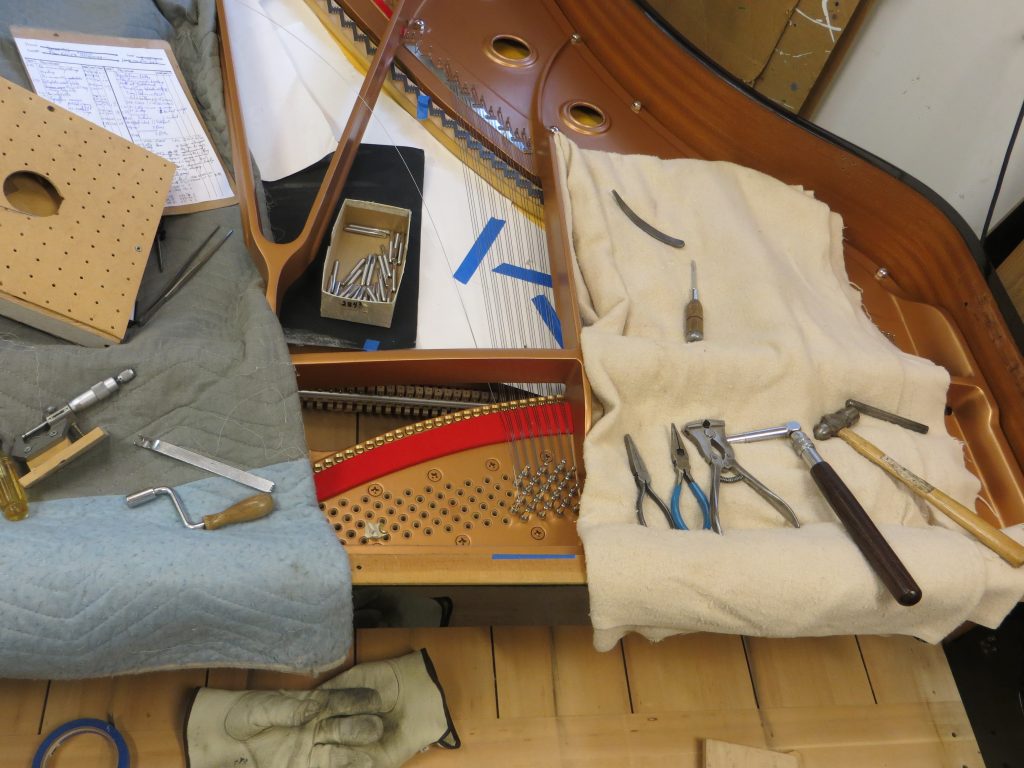
I am nervous but I have had consistent enough success to proceed with the work.
This is a place for humility and pride—in good measure and balance.
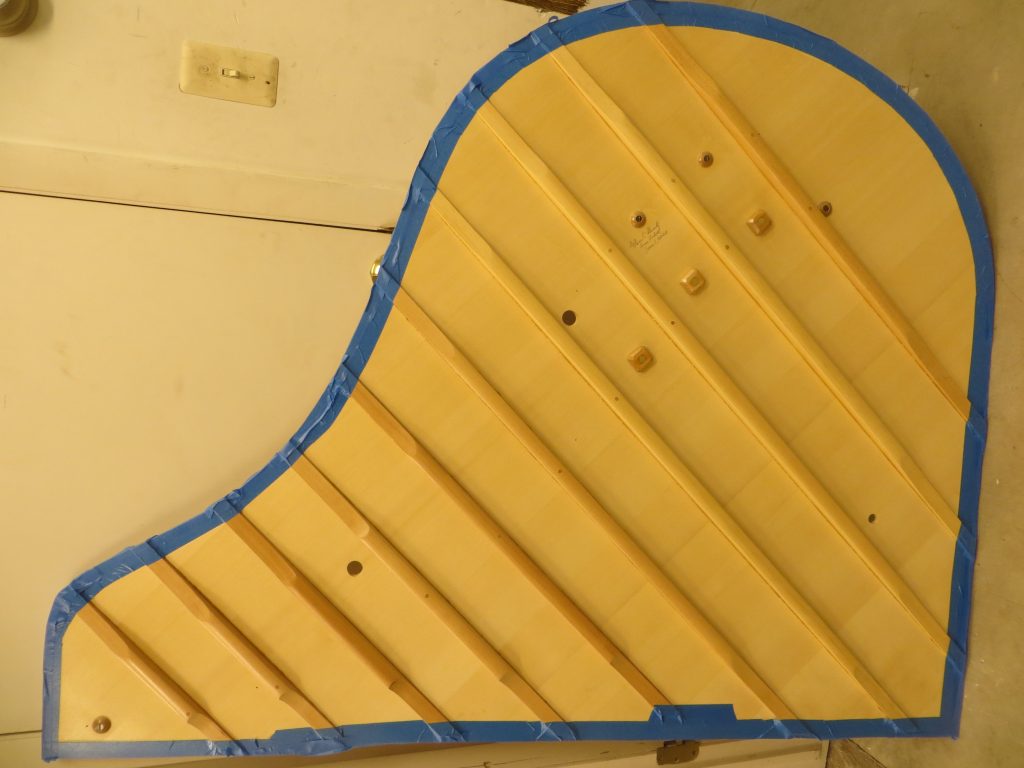
I write my name, the date, and my hometown on the bottom of the soundboard before spraying on a finish. My identity is built into the instrument. I expect it to be there for 60 or 70 or 90 years before someone in my great-grandchild’s generation breaks the board out and starts over.
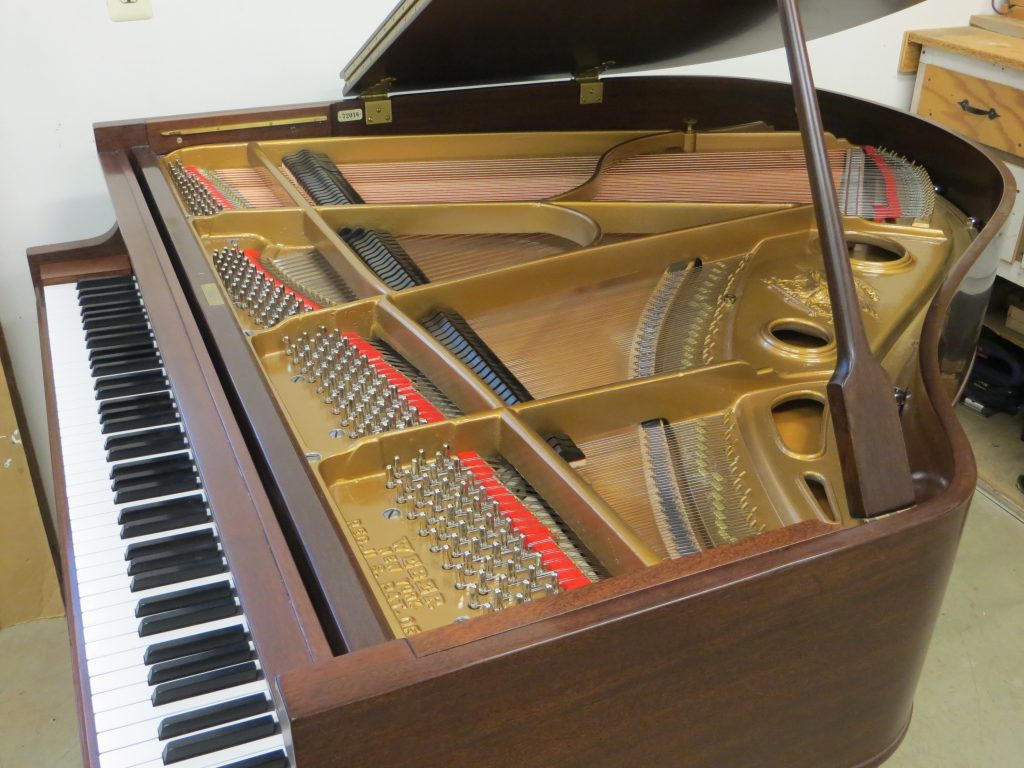
I work with the hope of that lifespan for my projects. If so, they will be good instruments for as long as I am known and remembered. That feels like enough.
The End

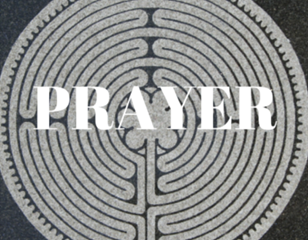
0 Comments